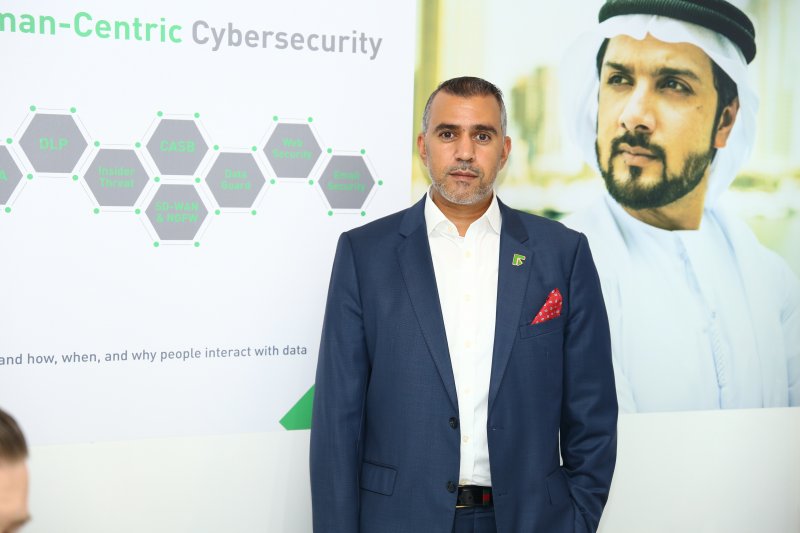Security expert Forcepoint has launched a trio of solutions at GITEX as well as announcing a new approach to ensure more holistic data protection across the enterprise.
Jawad Toukna, Forcepoint’s regional sales director for network security in emerging markets, told 60 Mins about the “human-centric approach” from its Sheikh Rashid Hall stand.
Forcepoint has also launched its SD-WAN, Data Guard and user behaviour analytics (UEBA) solutions at during its fourth outing at GITEX, and Toukna said the response to the products has already been positive.
“Everyone wants POCs for them,” he said. “They’re not commodity products, and they have a lot of services around them. We need to spend time working with organisations to understand their behaviour, and then we can come up with normal behaviour templates. Systems will then be able to send automatic alerts if behaviour changes, which will go a long way in protecting employees and companies.”
Toukna went on to highlight Forcepoint’s new approach to security would rely heavily on behavioural analysis. “It’s about moving away from focusing on endpoint solutions and just selling products,” he said. “It’s now about trying to build infrastructure that provides a risk-adaptive architecture. The idea is to integrate and offer different solutions, which can be behavioural, and work across the infrastructure. If we can follow data and understand the user, it enables us to anticipate risk.
“The weakest link in an organisation isn’t a firewall, but the human behind the machine. Human behaviour keeps changing, so we need solutions that adapt based on human beings.”
Toukna went on to offer an example of how particular employees could have their access to certain information limited once certain actions are triggered. “The head of HR will typically have access to CVs and payslips,” he said. “If that person is due to leave the company, does it make sense for them to access this kind of information? Systems should be able to re-categorise them to determine what information they can access.
“Most threats target executives, IT database administrators, and IT security teams. They have privileged access to critical data, and they’re the ones that need to be secured.
“We’re working in a way that makes it easy for customers. They don’t have to buy the full suite. They can migrate to our solutions piece by piece.”





